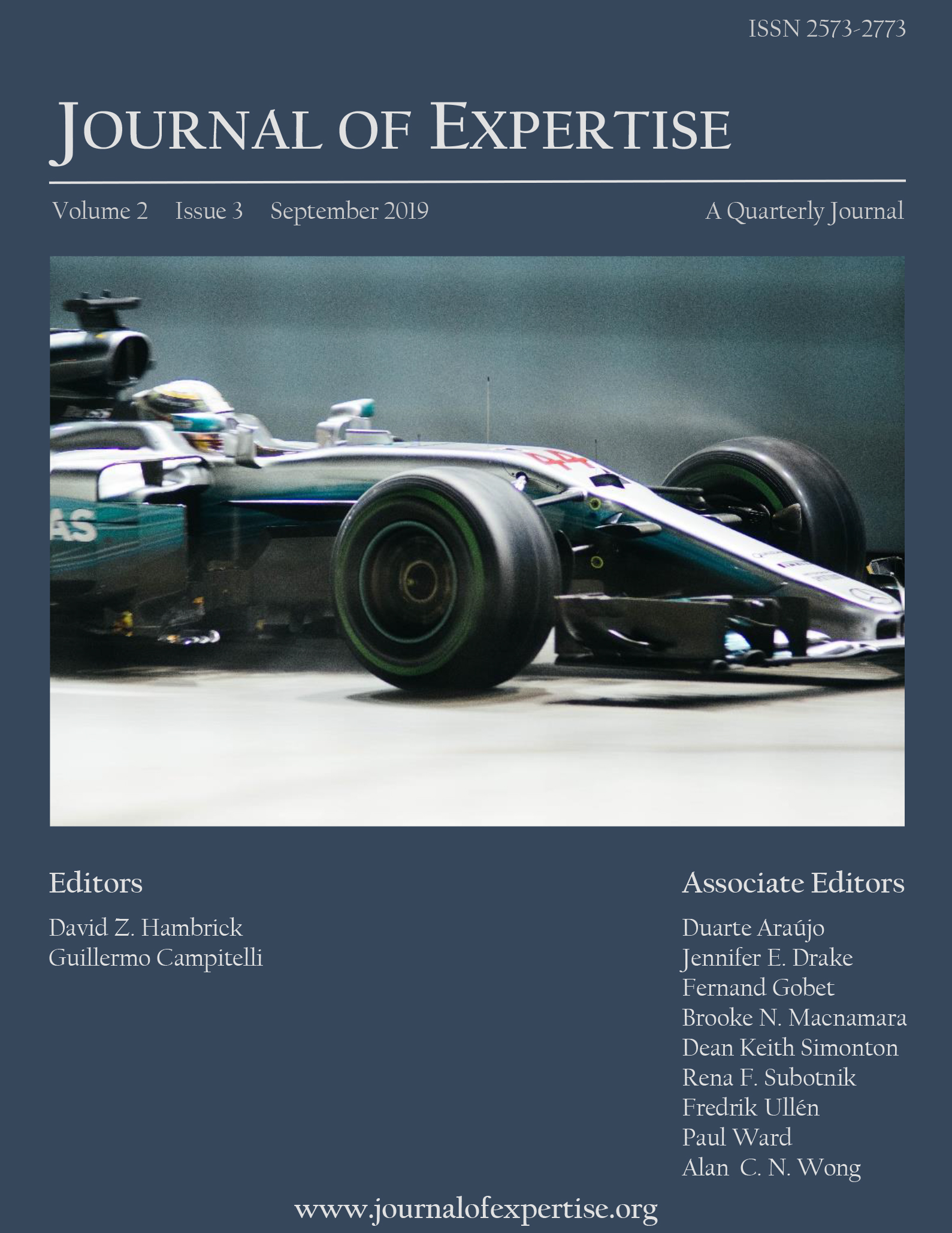Investigating the Period of Practice Needed to Acquire Expertise in Great Britain 2012 Track and Field Olympic Athletes
Toby Staff 1, Fernand Gobet 2, & Andrew Parton 1
Deliberate practice theory argues that expertise can be acquired only after 10 years of domain-specific deliberate practice. To assess this prediction, we examined data from track (n = 57) and field (n = 15) athletes representing Great Britain Track and Field team (Team GB) at the 2012 Olympics. We defined the period to excellence as the difference in age between achieving expertise (the first selection for an international senior outdoor athletic championship) and starting age (joining a club, being coached, or engaging in competition). Results indicated that elite track (75.4%) and field (93.3%) athletes acquired expertise in significantly less than 10 years
(M = 7.20, SD = 3.20, p < .001). Expertise mostly relying on the anaerobic pathway (n = 51) was acquired significantly faster than expertise mostly utilizing the aerobic pathway (n = 21), 6.15 ± 2.84 years vs. 9.78 ± 2.52 years (p < .001). Those who did not specialize early (n = 40) were faster in acquiring expertise in a new sport than those who specialized early (n = 32), 6.27 ± 2.78 vs. 8.38 ± 3.34 years (p = .005), contrary to deliberate-practice contention that early specialization is critical.

